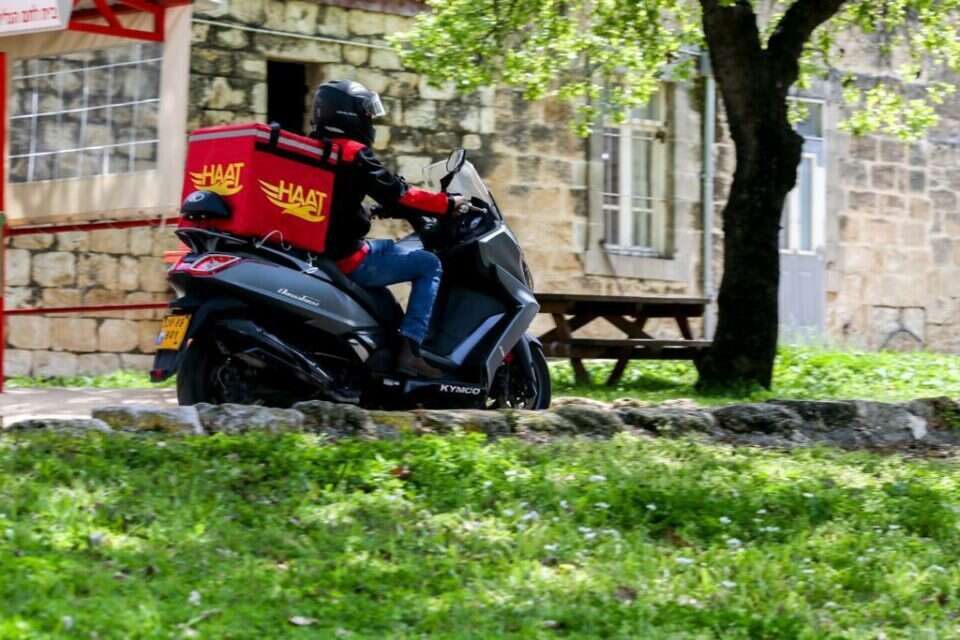"An average hamburger costs NIS 30-32 in the Arab sector, compared to NIS 60 in the Jewish sector," says Hassan Abbasi, co-founder and CEO of the HAAT food delivery app for "Israel Today."
According to Abbasi, however, the shopping basket is the same as the Jewish sector because the number of people is higher.
"The price of a shawarma dish is NIS 35 in Umm al-Fahm, while in the Jewish sector the price can reach NIS 50."
However, Abbasi says, "The price depends on many parameters, with the main difference being the rent, which is three times higher in Tel Aviv.
50% price differences,
"The favorite restaurant by the sector is a local hamburger restaurant in Umm al-Fahm. It works like a big restaurant in Tel Aviv and that means hundreds of orders a day. I can say that the five most successful restaurants in the sector are hamburger restaurants. This is not surprising. Hamburger restaurants used to be a trend "In the Jewish sector and today it is Asian. In my opinion, the Asian trend will be the next trend in the sector. At McDonald's, we have doubled sales in Umm al - Fahm since our entry and there are places where we account for 80% of sales."
Food to the house also in the Arab sector
"We all deserve food to the house," is the motto of the company's delivery service, which provides deliveries to cities without infrastructure and for customers without addresses and credit cards.
This morning (Monday), HAAT announced its expansion, which recently began with further collaborations with Deminos Pizza and KFC at the Nazareth branch.
HAAT is set to expand to Umm al-Fahm and Baqa al-Gharbiya.
The company also announced its entry into the peripheral cities of the Jewish sector, expansion into additional categories beyond the restaurant industry and the launch of the app in the Palestinian Authority and a number of cities in Morocco.
Most cash transactions,
HAAT is based on an innovative algorithm of location services, an easy and convenient interface to operate and a cash management system.
The innovation in the venture is reflected in the fact that HAAT is the first and only one in the country that allows delivery without an address according to the technology of highly accurate location services and allows payment in cash.
Another innovation is the option to view a digital menu.
The shipping price is NIS 15-25 and the shipping fee ranges from 15% -18%.
According to Abbasi, "Umm al-Fahm has over 150 restaurants and 80,000 people and there was not a single menu online. We target cities without infrastructure, even if it is cities without addresses like in the Arab sector. We launched the service in early 2020, before the Corona. In the first quarter there were 300 orders And in the last quarter of 2021 we have 300,000 orders with 17 regions and 45 villages.We today serve over a million residents and employees with over 900 restaurants, over 600 couriers and almost half a million orders in the last quarter.
"Before the corona in Umm al-Fahm made zero deliveries before the corona because of problems like lack of credit card. Today we have almost half a million downloads. We are talking about a population that has this need. There was a stigma about the sector, that everyone cooks at home. It all disappears and the numbers prove. What I say.We also know how to handle cash.Today 80% of our transactions take place in cash.
Amir Baballah, VP of Marketing and Sales, adds that "Today we are in the northern region, mainly in the sector, in the triangle and in Jerusalem, and in the coming month we will reach Rahat to the Bedouin sector, where companies in the field are trying to move away.
We said we would lift the economy in the city of Rahat and then expand to the surrounding villages like Segev Shalom.
We go outside the comfort zone and we go out into the territories as well.
Hassan Abbasi, Photo: Omar Samir
"In addition, after two years we said we would reach the general sector. We said we should not get to Tel Aviv, but where we are needed. We will reach Carmiel in the general sector in mid-August and then expand to plowing. We will also expand to Tulkarem and from there the road to Nablus and Ramallah will be easier. Of 80% cash in the sector, in the territories it can reach 97% cash and we will have to adapt ourselves and the workers to it. We will jump another step and reach Morocco. We have done research in countries of radius of 1,000 km around us.
We explored Jordan, Egypt, Ivory Coast and traveled to Morocco and found more coal there outside the country.
We will be in Morocco in two and a half months.
"In addition, we are expanding into new categories. We are in contact with large pharma chains and after that we will also enter the field of gifts, consumer products and packages. We will call this activity Hatt Market, when the delivery will arrive within an hour and a half."
HAAT has raised $ 3.7 million to date by prominent investors: Gigi Levy Weiss, founder of the NFX Guild investment fund, Sir Ronald Cohen, founder of the Apax Investment Fund and Eyal Waldman, founder of Mellanox.
Were we wrong?
Fixed!
If you found an error in the article, we would love for you to share it with us

